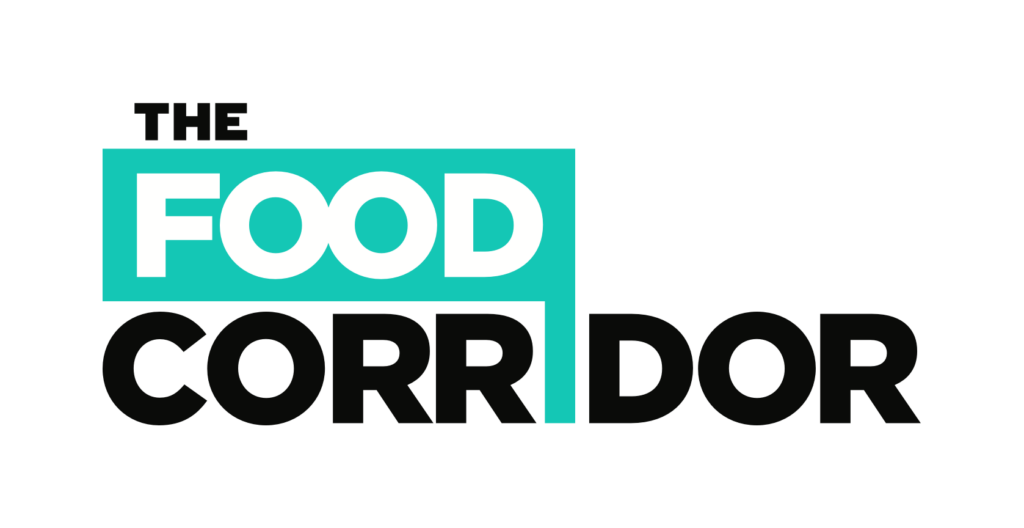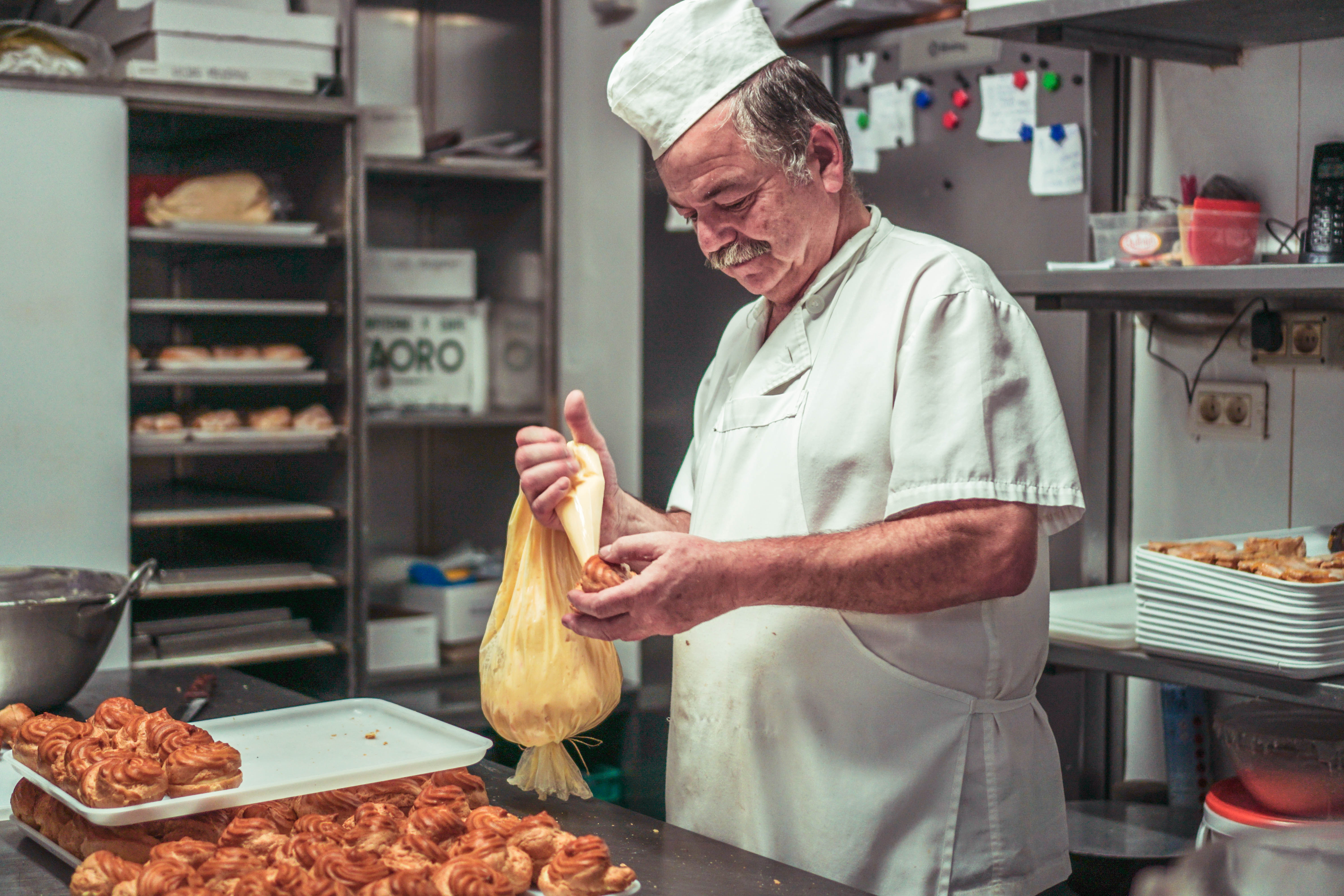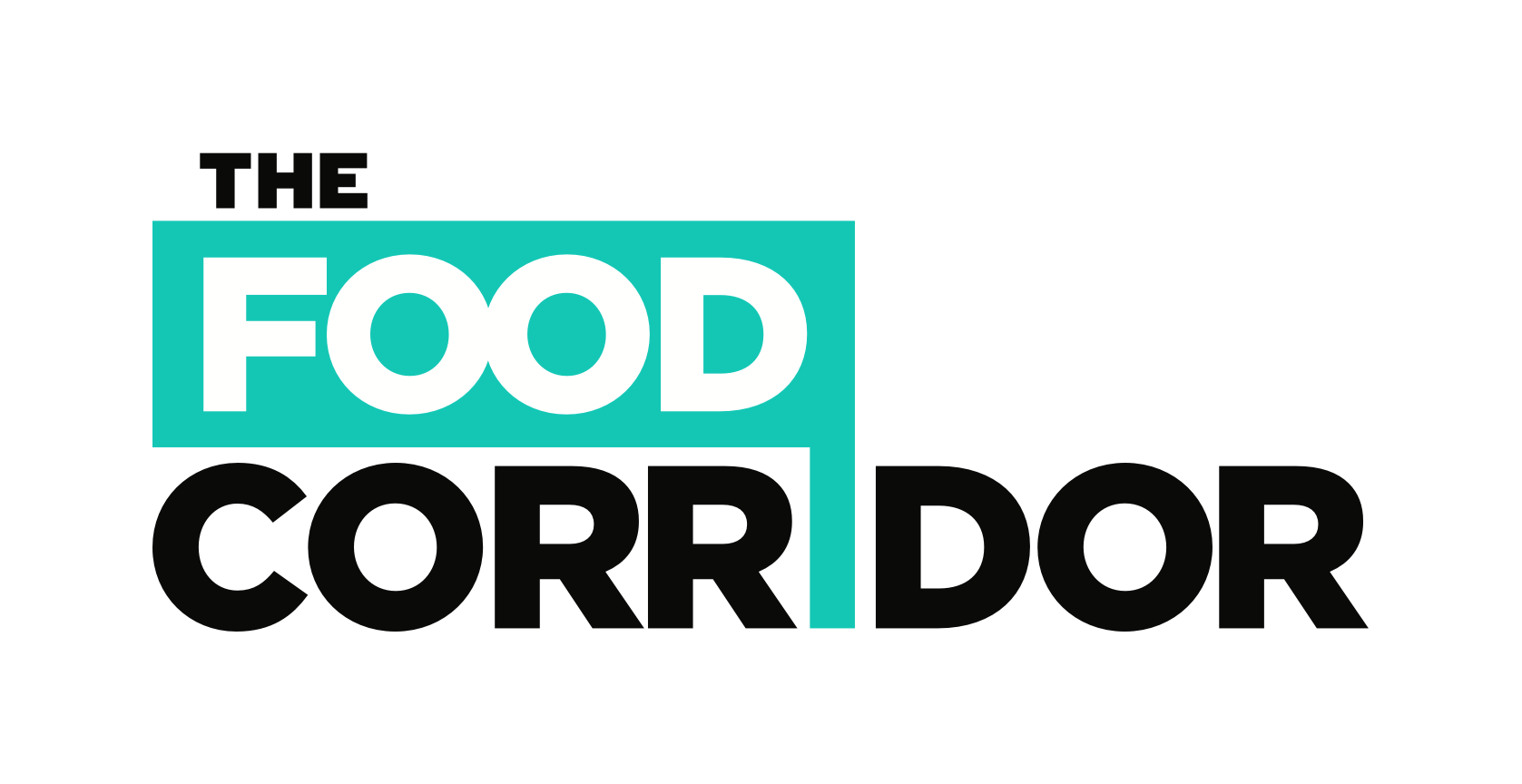In a year like 2020, you never know what’s around the corner. If the last few tumultuous months have taught us anything, it’s this: strive for the best but prepare for the worst.
For foodservice vendors, food truck operators, manufacturers, market traders, chefs, and caterers who use shared-kitchen facilities, there’s a constant nagging worry that something will go wrong. From a customer getting sick from a foodborne illness, or an unexpected fire or theft, to loss of income through a fridge or freezer failure, risk is part of the business.
The way to mitigate the risk is to take out a robust insurance policy. However, anyone who’s dealt with an insurance broker probably knows how painful this experience can be.
First, you fill out an application form, which asks you for every detail of your business history from the last decade. You might be waiting days or weeks wondering if they’re going to get back to you. Then you finally speak to a broker who asks you all the same questions again.
You wait again for a quote and perhaps you have a back and forth. Then they send a quote that is so high, with so many exemptions, you might as well just live with the risk.
There must be a better way!
We’ll get to that in due course, but first, let’s answer the burning question.
Why is it So Hard for Shared Kitchens and Their Users to Find Appropriate Coverage?
An insurance company’s job is to calculate risk and figure out how much to charge you based on the risk level of your business. They pool the customer premiums to cover any claims.
Risks are easier to calculate when they are clear and known. That means regular businesses that are well established, like traditional restaurants, will have an easier time getting insured. And the more businesses there are taking out a similar policy and pooling money to cover claims, the cheaper the premiums will be.
The flip side for relatively new and niche industries is that insurance companies have a hard time being certain of the risks involved and as a result, they charge more. Add to this the relatively small number of businesses looking for this type of coverage and the inherent risks involved in outdoor cooking, transporting gear and ingredients, and sharing prep kitchens, and you have a recipe for high premiums.
Happily, there is a community of shared kitchen owners and tenants in a growing industry creating a demand that needs to be satisfied. And there are insurers on the case, who want to help you find the right coverage at a reasonable price.
What the FLIP is the Solution?
The team at Veracity Insurance Solutions has been insuring mobile vendors and other non-standard food businesses for years, providing tailored coverage to meet their unique needs. The team created The Food Liability Insurance Program, or the FLIP, as a package to make getting coverage easier for users of shared kitchens
As Troy Smith, Director of Strategic Partnerships at Veracity, explains: “A shared-use kitchen is a gateway for everything from private chefs, to caterers, food trucks and trailers, concessionaires, and even those who are selling produce at a farmer’s market. All of those different audiences are also customers of ours.”
“Commercial kitchen owners tend to be lumped in with restaurant owners, but they’re different,” He continues, “They’re held to the same standards and guidelines which don’t match what they do.”
The FLIP Program is specifically built for those who use shared commercial kitchens, in partnership with The Kitchen Door and The Food Corridor. It has a number of unique features to make it super convenient to get the exact coverage you need.
Ryan Muir, Product Marketing Manager at Veracity who looks after the FLIP Program, explains that the program has been around since 2012, and is “specifically tailored to help food businesses cover themselves against unexpected costs and damages.“
The FLIP Program provides commercial general liability insurance, inland marine coverage (That is, tangible property that is movable or transportable in nature (e.g. supplies, equipment, or inventory)) and many additional options.
For example, there is a trailer “endorsement” option that covers the trailer and its contents once you unhook it from the vehicle and if you needed to add liquor liability, you can just add it on easily online.
Because the policy is tailored so specifically, the program comes in at a much lower price for the specific coverage you need, starting at just $299.
“FLIP works through a risk purchasing group,” Ryan explains, “Which allows vendors to purchase a policy at a group rate while still maintaining their own individual policy limits.”
Rather than filling out a form, waiting for days, and then getting on a confusing phone call, commercial kitchen users can have a policy set up in as little as 10 minutes by filling out a simple form. You can choose your level of coverage and add-ons there and then with all the costs laid out upfront.
How Does it Work for Shared-kitchen Owners vs Tenants?
The FLIP Program is a policy for the users of shared kitchens, but that doesn’t mean it can’t help shared kitchen owners too. They also have liability inherited from the users of their kitchens as Ryan explains:
“If a food vendor were to come into a shared commercial kitchen and something were to happen, say they were to prep their food improperly and one of their customers was to contract a foodborne illness of some kind, potentially, the commercial kitchen owner could be implicated in the suit as well.”
To cover both parties, vendors can add a commercial kitchen on as an “additional insured” or “certificate holder” easily via an online dashboard. The specifics differ from city to city and state to state but the FLIP program makes it easier to tailor the needs and get the right coverage wherever you are located.
Troy adds that on a FLIP vendor policy, even though the commercial kitchen owner is not the policyholder and isn’t paying for the premium service, they can create their own FLIP dashboard and pre-fill their information. He explains how it works: “You can generate a unique URL that will auto-populate that additional information onto each policy.”
Shared kitchen owners can share that URL with any new or existing customer who wants to purchase a policy. This makes signing up super easy for them and ensures that the information given is correct.
Troy explains that it creates uniformity because when they go to buy a policy all the information is accurate and consistent. Having it already populated saves a ton of headaches, because, as he says: “If people can get it wrong they will!”.
For shared kitchen owners who would like their own policy, the FLIP Commercial Kitchen Program offers tailored coverage for a variety of risks. For this coverage, shared kitchen owners will go through a traditional quote process.
How has the FLIP Helped Food Vendors and Kitchen Owners?
One of the main benefits for food vendors who may use multiple kitchens and markets, and cater to events in different areas, is that they can easily add more additional insureds to the insurance from wherever they are at no cost.
When you arrive at an event, you need to make sure that both you and the venue or relevant municipality are covered. Troy gives the example of Roaming Hunger, a platform that connects food trucks with individuals or businesses who want to hire them to cater to an event. The food trucks need coverage each time they take a job.
“Some of these food trucks are being charged anywhere between $35 – $75 each time to add an additional insured,” Troy reveals. “That can really add up when you’re going to multiple markets, kitchens, and municipalities.”
He advises vendors to look not only at the premium of a policy but also the charges for adding these extras because that can hit you each and every time you need to use a new market or kitchen. These costs soon add up but with the FLIP Program, you can add as many additional parties as you need to at no additional cost.
Troy explains that this flexibility, aside from being convenient and free, can actually help you get more business. He lays out a common scenario that the team sees:
“There may be three or four vendors vying for the same spot on a certain corner at a certain time for an event. By being able to get on their phone and add this municipality or business onto their policy there and then, and get it emailed to them, they are able to secure the job.”
You never know what might happen as a vendor and Troy gives some examples of real-world claims joking that “unfortunately, these are the only interesting things in insurance.”
Here are some real examples of claims and the payouts received:
-
- Generator caught on fire, causing a food truck to catch on fire: $2,380 paid out
- Freezer and fridge failures resulting in loss of product and sales: $4,638 paid out
- Two generators were stolen that were powering a food trailer: $1,270 paid out
- Water and mold damage in a food truck: $743 paid out
- While driving, a customer’s blood sugar level dropped causing him to run off the road and hit a tree: $2,393 paid out
- Break-in and theft when a food truck was parked: $5,260 paid out
These cases hammer home the reality that anything can happen when you least expect it. Making sure you have appropriate coverage is vital for the success of your business.
With 20,000 active policyholders, the FLIP Program is a proven lifeline to protect businesses like yours. It is designed to be simple, easy to understand, and affordable while giving you all the coverage you need to protect your business at this uncertain time.
What the FLIP are you waiting for? You can cover your business starting for just $299, so if you’re tired of long phone calls and outrageous quotes, fill out the simple form online to get your business covered today.


